
Dr Putnam is regarded as one of the world's most influential social researchers and the leading authority on social capital. Dr Putnam's international reputation is primarily based on his theories of social capital and social trust. His most famous and controversial work is Bowling Alone: The Collapse and Revival of American Community (2000), a ground-breaking work on the decline of social capital and social trust in American society. His most recent research has focused on the relationship between trust and ethnic diversity in American society, as well as on the power of religion to divide and unite. He is now working on growing class inequality in America. Dr Putnam has also advised governments in many countries over the last decade.
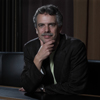
Will Kymlicka is one of the world’s first and most prominent theorisers of multiculturalism and multicultural citizenship. He is the Canada Research Chair in Political Philosophy at Queen's University in Kingston, Canada. His work, translated into 34 languages, has focused on how democratic countries address issues of ethnic, racial and religious diversity, with a special focus on the theory and practice of multicultural citizenship. He is the author of seven books published by Oxford University Press, including Multicultural Citizenship (1995), and Multicultural Odysseys: Navigating the New International Politics of Diversity (2007).
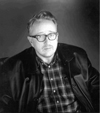
Frederik Stjernfelt, professor, Center for Semiotics, Aarhus University. Recent publications: Diagrammatology (2007), The Democratic Contradictions of Multiculturalism (with JM Eriksen, 2012). Research interests: semiotics, diagrams, epistemology, political philosophy, free speech, history of the Enlightenment, etc. Co-PI of the projects "Joint Diagrammatical Reasoning in Language" and "Humanomics". Am currently working on a book on the left wing's turn away from Free Speech (in Danish) and a book on the connection between semiotics and logic in Charles Peirce. 1993-2013 editor of the journal KRITIK. Critic at the Danish weekly Weekendavisen.
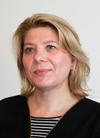
Antje Gimmler is Professor for Applied Philosophy at the University of Aalborg, Denmark. She graduated in philosophy at the Free University Berlin, received her PhD from University Bamberg, Germany and taught philosophy and social theory at University Marburg, Germany. Her research fields are political and social philosophy, classical pragmatism and neopragmatism, philosophy of science and technology as well as mobility studies. She is director of the Center for Applied Philosophy at Aalborg University. Selected publications: Institution und Individuum, Frankfurt 1998; 'Deliberative Democracy, Public Sphere, and the Internet', in: Philosophy & Social Criticism 2001, 27 (4); Pragmatic Aspects of Hegel’s Thought, in: Eggington (ed.): The Pragmatic Turn in Philosophy, Albany 2004; Citizenship under Transformation, Editor of Special Issue of Distinktion: Scandinavian Journal of Social Theory, 2011.
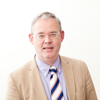
Professor Wagschal holds the chair of Political Sciences with focus on Comparative Politics at the Albert Ludwigs University of Freiburg since 2009. Before taking up his current position, he held the chair of Political Sciences with focus on Comparative Politics at the Ruprechts-Karls University of Heidelberg. For his research, Professor Wagschal visited different institutions, for example the Free University of Amsterdam, the London School of Economics and the University of Hull, England. His field of studies are in Political Sciences, Comperative Politics, Democracy and Tax Policy. Among his books are: Haushaltskonsolidierung (with Georg Wenzelburger)( 2008), Steuerpolitik und Steuerreformen im internationalen Vergleich (2005), Statistik für Politikwissenschaftlerien (1999), Direkte Demokratie (2007), Politische Ökonomie, Demokratie und wirtschaftliche Leistungsfähigkeit (with Herbert Obinger and Bernhard Kittel)(2006).

Ronald F. Inglehart (born September 5, 1934 in Milwaukee, Wisconsin) is a political scientist at the University of Michigan. He is director of the World Values Survey, a global network of social scientists who have carried out representative national surveys of the publics of over 80 societies on all six inhabited continents, containing 85 percent of the world's population. In the seventies he developed the sociological theory of post-materialism. Ronald Inglehart's numerous writings have been extremely influential, and have since been translated and published in German, Italian, Spanish, French, Swedish, Brazilian Portuguese, Russian, Polish, Croatian, Japanese, Chinese, Vietnamese, Korean, Persian, Urdu and Indonesian. Inglehart has written more than 200 publications, including: The Silent Revolution (1977), Culture Shift in Advanced Industrial Society (1990), Value Change in Global Perspective (1995), Modernization and Postmodernization (1997), Rising Tide: Gender Equality and Cultural Change around the World (2003, co-authored with Pippa Norris), Human Beliefs and Values: A Cross-Cultural Sourcebook Based on the 1999-2002 Values Surveys (2004, co-edited with Miguel Basanez, Jaime Deiz-Medrano, Loek Halman and Ruud Luijkx), Sacred and Secular: Religion and Politics Worldwide (2004, co-authored with Pippa Norris), Modernization, Cultural Change and Democracy (2005, co-authored with Christian Welzel).
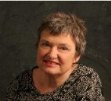
Margit Warburg is Professor of Sociology of Religion, University of Copenhagen. Her research interests are the relationship between religion and migration; religion and globalisation; religion and demography; religious minorities; civil religion. Among her publications are New Religions and New Religiosity (Aarhus University Press 1998, edited with Eileen Barker); Religion and Cyberspace (Routledge 2005, edited with Morten T. Højsgaard); Citizens of the World. A History and Sociology of the Baha’is from a Globalisation Perspective (Brill, 2006); Holy Nations and Global Identities. Civil Religion, Nationalism and Globalisation (edited with Annika Hvithamar and Brian Jacobsen), Brill, 2009; Religion in the 21st Century. Challenges and Transformations, (edited with Lisbet Christoffersen, Hans Raun Iversen and Hanne Petersen), Ashgate, 2010. The latest article is “Counting niqabs and burqas in Denmark: Methodological Aspects of Quantifying Rare and Elusive Religious Subcultures”, Journal of Contemporary Religion, January 2013 (with Birgitte Schepelern Johansen and Kate Østergaard).
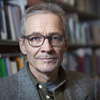
Georg Sørensen is Professor of International Politics and Economics at the Department of Political Science, Aarhus University. Among his research interests are the contradictions and tensions of the liberal world order, democratization, fragile states, the future of the sovereign state and theories of international relations and politics. He has been a visiting professor at a number of European and American universities. He has written numerous books and articles on international relations and development issues. Among his books are Changes in Statehood (2001), Democracy and Democratization (2008), Introduction to International Relations (2010, with Robert Jackson) and A Liberal World Order in Crisis (2011) at the publication of which Francis Fukuyama described Sørensen as “one of the keenest contemporary observers of global politics”.
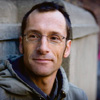
Ole Wæver is a professor of International Relations at the Department of Political Science, University of Copenhagen. He has published and broadcast extensively in the field of international relations, and is one of the main architects of the so-called Copenhagen School in International Relations. His primary research areas are theories of International Relations (including disciplinary history and sociology of science), security theory, conceptual history for International Relations, the relationship between European integration, identity and security, regional security, nation and state concepts as key to foreign policies, religion, secularism and security, the status and prospects for international law and different forms of world order, mediation and conflict resolution, missile defense, weaponization of space and deterrence theory, Danish security and defense policy, Identity, cooperation and transregionalism in the Nordic and Baltic areas. Publications include Regions and Powers: The Structure of International Security (2003, with Barry Buzan), Security: A New Framework for Analysis (2008, with Barry Buzan and Jaap de Wilde), Global Scholarship in International Relations: Worlding Beyond the West (co-ed with Arlene B. Tickner) Routledge in print.
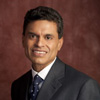
Fareed Zakaria is host of CNN’s flagship international affairs program—Fareed Zakaria GPS, Editor at Large of TIME, a Washington Post columnist, and a New York Times bestselling author. He was described in 1999 by Esquire Magazine as “the most influential foreign policy adviser of his generation.” In 2010, Foreign Policy named him one of the top 100 global thinkers. Since 2008, he has hosted Fareed Zakaria GPS, which airs Sundays worldwide on CNN. Dr. Zakaria’s in-depth interviews with the Dalai Lama, heads of state including Barack Obama, Manmohan Singh, King Abdullah II, Dmitry Medvedev, Moammar Gadhafi and Lula da Silva, as well as countless intellectuals, business leaders, politicians and journalists have been broadcast in more than 200 million homes around the world. Within its first year, GPS garnered an Emmy nomination for an interview with Premier Wen Jaibao. Dr. Zakaria was introduced as TIME Editor at Large in October 2010 after spending 10 years overseeing all of Newsweek’s editions abroad. His cover stories and columns—on subjects from globalization and emerging markets to the Middle East and America’s role in the world—reach more than 25 million readers weekly. While his columns have received many awards including a 2010 National Magazine Award, his October 2001 Newsweek cover story, “Why They Hate Us,” remains the most decorated. Before joining Newsweek in October 2000, he spent eight years as managing editor of Foreign Affairs, a post he was appointed to at only 28 years old. The Post-American World, which is Dr. Zakaria’s most recent book, was heralded in the New York Times book review as “…a relentlessly intelligent book” and The Economist called it “…a powerful guide” to facing global challenges. Like The Post-American World, his previous book, The Future of Freedom, was a New York Times bestseller and has been translated into over 20 languages. Born in India on January 20, 1964, Dr. Zakaria went on to receive a B.A. from Yale College and a Ph.D. from Harvard University. He has received honorary degrees from numerous universities including Brown, the University of Miami, and Oberlin College. He lives in New York City with his wife, son and two daughters.
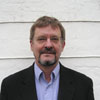
Ove K. Pedersen is professor of Comparative Political Economy and the funding father of Department of Business and Politics, Copenhagen Business School. He has been professor of Comparative Politics at Copenhagen University and professor of Public Administration at Aalborg University. He is honorary professor at Aalborg University and Aarhus University in Denmark and a visiting scholar at Harvard, Stanford, Stockholm and Peking Universities and Dartmouth College. His work in English includes The National Origins of Policy Ideas: Knowledge Regimes in America, France, Germany and Denmark (2013), The Role of Legends in Nation Building (2013), National Identity and Varieties of Capitalism: The State of Denmark (2006), The Oxford Handbook on Comparative Institutional Analysis ( 2010), Europeanization and Transnational States (2004), The Rise of Neoliberalism and Institutional Analysis (2001). In 2011, he commenced the publication of a three volume study on the state: The Competition State (Konkurrencestaten). The second volume The Market State (Markedsstaten) is ready for publication in 2013. The third volume The State (Staten) will be published 2015. In total he has published or coedited more than 30 books and published more than 300 articles in journals in several languages.

John A. Hall is James McGill Professor of Sociology at McGill University, Montreal. He has held previous posts at Southampton University, the London School of Economics and Harvard University. His research areas are nations, states and empires; nationalism and war; the economic consequences of the size of nations; sociological theory. His publications include The Sociology of Literature (1979), Diagnoses of Our Time (1981), Powers and Liberties (1985), Liberalism (1988), The State (1989, co-authored with G. J. Ikenberry), Coercion and Consent (1994), International Orders (1996) and Is America Breaking Apart? (1999, co-authored with Charles Lindholm). He has edited and co-edited collections dealing with the state - e.g. Campbell, J.L., J.A. Hall and O.K. Pedersen (eds), National Identity and the Varieties of Capitalism: The Danish Experience (2006) - the rise of capitalism, the social philosophy of Ernest Gellner, the theory of nationalism and the nature of civil society. At present he is writing on the interaction between nations, states and empires. He was an Invited Fellow at the Swedish Collegium for Advanced Studies in the Social Sciences (SCASSS) in Uppsala, Sweden, during the 1999-2000 academic year, Visiting Research Professor (1999-2002) at Queen's University in Belfast, and the Fowler Hamilton Fellow at Christ Church College, Oxford in 2003. He has been an Honorary Professor of Sociology and Politics at the University of Copenhagen since 2001. He served as Dean of the Faculty of Arts 2003-2005. His book titled Ernest Gellner: An Intellectual Biography was published in 2010 and longlisted for the Orwell Prize.
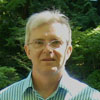
John Hutchinson joined the LSE in 1999 having previously taught Griffith University, Brisbane for many years. He undertook an undergraduate History degree at the University of Edinburgh and a PhD in Sociology at the LSE. He has authored and edited several books in the field of Nationalism, including The Dynamics of Cultural Nationalism (1987), Modern Nationalism (1994) and Nations as Zones of Conflict (2005). He is currently Vice-President of the Association for the Study of Ethnicity and Nationalism and Deputy Editor of Nations and Nationalism. In addition, he sits on the advisory boards of the Institute for the Advancement of the Social Sciences, Boston University, and of the Study Platform on Interlocking Nationalisms, University of Amsterdam. He is currently completing a monograph on warfare and nationalism. Hutchinson is an interdisciplinary scholar whose work has contributed to theories of nationalism, the study of cultural nationalism, notably in Ireland, and more recently, warfare and nationalism. Hutchinson is a leading scholar of the ethnosymbolist school (established by Anthony D. Smith) that highlights the role of embedded historical memories in the formation of modern nations. He emphasises the dynamic the role of historians and artists, showing how they interact with religious reformists and a discontented modernising intelligentsia to form national identities.